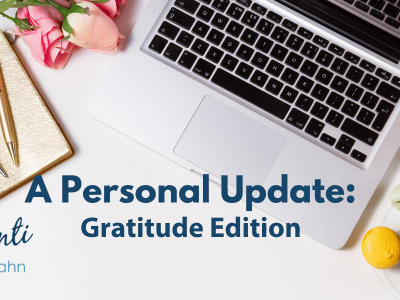Very simple Superpowers Sequence, Part 4: Scientists have identified simple superpowers that help us prosper in our life and relationships. In elements 1 and 2 we looked at gratitude and curiosity and very last 7 days we targeted on why forgiveness is a superpower. This time, we get realistic and deal with why we resist forgiving other folks, and how to truly forgive.
Past 7 days we identified that forgiveness leads to unbelievable wellness and relationship positive aspects. So why do we struggle to do it? Why would we resist some thing that a) God desires us to do, b) study states is good for us, and c) generates the inner-peace we extensive for?
And just as essential: how on earth do we forgive, when we just never sense like it? Let us dive in.
Why do we resist featuring forgiveness?
Here are the most steady objections I listen to:
- It feels like we are allowing the other particular person off the hook for their behavior. I have a correct to be mad.
- It feels like we’re at risk of getting rid of a form of perceived advantage. When we forgive and enable go, we instinctively experience we are dropping the upper hand.
- Ironically (presented the previously mentioned), we also enjoy possessing a kind of “victim standing.” This lets us to justify issues we otherwise would not.
- We fear that the report of the person’s offense will by some means tumble away if we forgive.
- We’ve been harmed so deeply that we basically want the other person to put up with.
Now, as we claimed final time, forgiveness does not diminish grievous hurts. And it doesn’t mean disregarding our legitimate soreness or anger. But it does keep us from sinking into a pit of bitterness and avoid identifying as a victim for the long run.
Here’s what I indicate. A pricey friend of mine was raped as a teen and that trauma has led to a lot of emotional repercussions for her and her spouse. However she has labored to forgive her rapist, so she can be set totally free, even as she has labored to hold the gentleman accountable. Forgiveness aids her method daily life from a feeling of individual agency, power, and compassion.
The massive image in all this is that we have a sovereign God who cares about fairness and restoration. He values mercy and justice. And this may perhaps be really hard to listen to in some situations, but He loves you and the individual who damage you.
Our task is to forgive and allow our God form all the rest out. As I wrote in my devotional Discover Joy, “One who forgives finds independence. And when we locate accurate forgiveness, we uncover pleasure.”
So how do we truly do that?
How can we forgive?
We know why we should forgive, and we’ve taken intention at some of the justifications we use for not forgiving … and now we have arrived at the million-dollar dilemma:
How do we forgive?
This could by no means be totally coated in a single article, but the following ways can set us on a route that focuses on locating the will and the power to forgive – as perfectly as exploring the peace and pleasure that flows from it.
Action 1: Pray. Start off by praying for the other particular person. It’s seriously really hard to be mad at another person you are praying for continuously.
Pray also that God will enlarge the functionality of your heart to forgive. That He’ll make the wish of your heart line up with the need of His heart. That He will make you additional like Him.
Move 2: Detect with the wrongdoer. In his masterful guide “Forgive,” my previous pastor, the late Tim Keller, described the importance of viewing some others in the extremely human way we view ourselves. He wrote:
“If any person has lied to you, you notify on your own, ‘She lied mainly because she is just a liar!’ But if you are at any time caught in a lie, and anyone asks why you lied, you say, ‘Well, certainly, but it’s complicated. I didn’t imply …’ Indeed, you did lie, but you are basically a good particular person. So while you continue on to assume of yourself as a three-dimensional, elaborate human remaining, you start off to imagine of the man or woman who lied to you as a a person-dimensional villain.”
Keller gets at a thing profound. In most circumstances, viewing other folks as people who are doing the most effective they can postures us to forgive.
There are situations when the wrongdoer is genuinely enthusiastic by evil, and that involves a distinctive point of view. But in most working day-to-day circumstances exactly where forgiveness is desired – the text our mum or dad claimed to harm us, the way our colleague held up our work job – we will do better to see the person by way of eyes of compassion and, thus, lower their position from a “villain” to a person. Just like us.
Stage 3: Trade destructive views for positive kinds. In a former expert lifestyle, I aided another person by sharing an enormous total of my do the job. I did not get credit, and this actually impacted me. But just after an ideal interval of declaring “ouch,” I recognized it was important to not harbor damaging feelings about it. At any time I heard the person’s name from that stage on, I thanked God for the good function they were being performing and the folks who were staying impacted.
It established me cost-free.
Instead than rehearse our grievances, let us rehearse God’s goodness. Hurts and injustices are real, but when we choose our eyes off God and place them on our unfair remedy, we actively give that unfair matter the means to gasoline unforgiveness.
Phase 4. Get action as essential – but do so from a area of forgiveness (not unforgiveness). There might be occasions we must get motion even as we forgive.
Not too long ago, I was speaking to an up-and-coming engineering specialist. For the past calendar year she has been operating with her firm’s major shopper, who is also the firm’s most challenging consumer. She described the client’s crew users as often performing things like shifting her programming with out understanding the system – and then blaming her for the technique breaking.
She is apprehensive about being fired, turning into frustrated, not sleeping, and snapping at her partner.
So what does she do? Properly, from a qualified growth point of view she possibly has to establish boundaries and start documenting effectiveness – hers and theirs. She may possibly need to have to wander absent from the work for her have health.
But in our dialogue, what never ever occurred to her was that the first point she experienced to do was forgive. If not, every other step could be driven by anger, self-justification, and even a want for a handy area to put the blame for snapping at her spouse.
“I have to have to forgive this client for all the emotional outcomes I have endured this year” is a transform in commitment that can aid this younger skilled get ideal steps from a put of energy alternatively than from bitterness or blame.
Move 5: Make forgiveness a pattern. How do routines kind? Regularity. And have confidence in me, there are times when folks and cases will call us to build forgiveness-consistency!
There is a tale in the New Testament in which Peter asks Jesus how several periods he need to forgive an offense. “Up to 7 times?” he asks. But Jesus tells him seventy-7 periods. Other translations counsel his wording intended seventy occasions seven periods. I really do not think Jesus literally meant to hold count until finally Peter acquired to “77 times” or “490 situations.” The idea He was expressing is that He forgives about and above (and more than) and He desires us to be like Him.
I’ve had a particular person in my life for whom 70 x 7 has likely been literal! Perhaps you can relate. When that person’s name emerges, I pray for them by title. It’s instinctual now. A behavior.
Friends, cultivating the superpower of forgiveness is a behavior worthy of making. Some injuries might have altered the training course of our full lives and many others may perhaps merely be individual peeves. But in every circumstance, we can make forgiveness a behavior. A routine that is an chance to put tooth into our faith. A behavior that makes it possible for us to acquire what was hurt, and bring healing as a substitute.
And if you are intrigued in getting Shaunti talk on kindness for your place of work, church, faculty or neighborhood group, remember to contact Nicole Owens at [email protected].
You should notice: This post may comprise affiliate links. As an Amazon Affiliate we earn a compact volume from qualifying purchases through these affiliate links. This doesn’t value you anything at all, and will help us continue on bringing you excellent content!
Much more from Shaunti’s Blog site:










